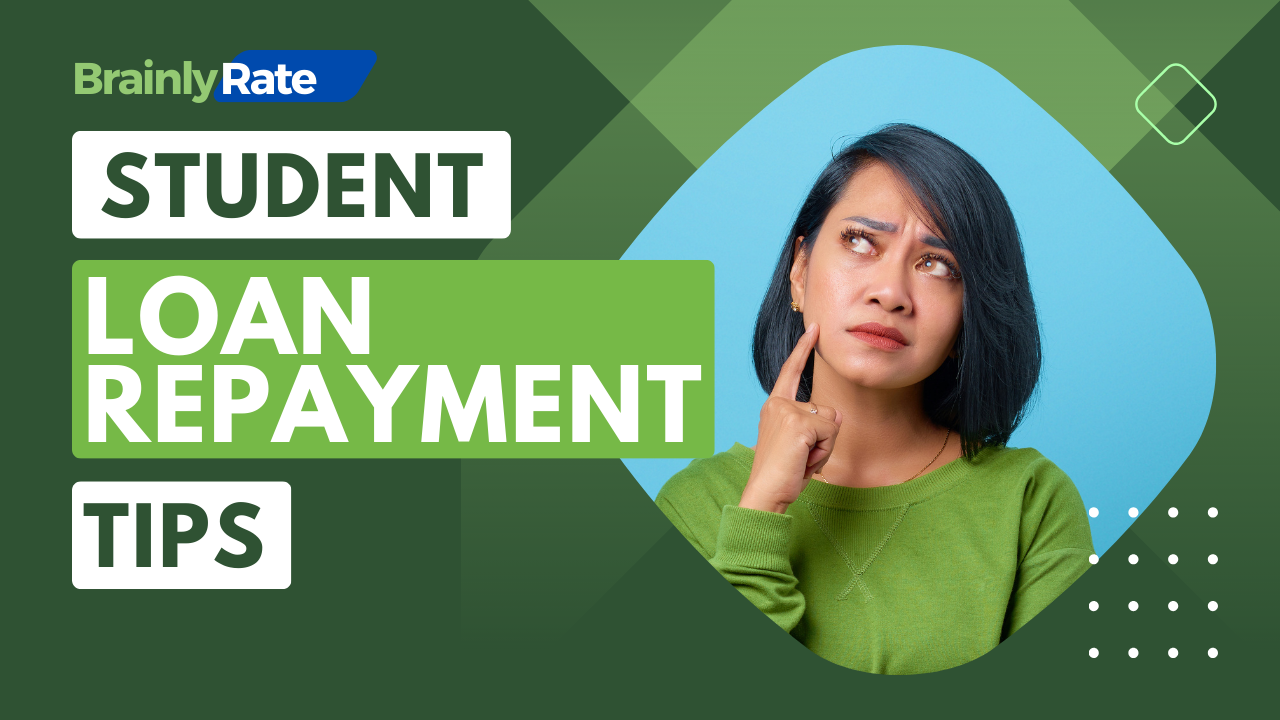Introduction to Student Loans
Student loans are a pivotal aspect of modern education, enabling millions to pursue higher learning. They are a form of financial aid designed to help students cover the cost of post-secondary education, including tuition, books, and living expenses. However, they also represent a significant financial commitment, often resulting in substantial debt that can impact one’s financial future. Understanding the nuances of student loans is crucial for making informed decisions and managing this responsibility effectively.
Types of Student Loans
Federal Student Loans
- Government-Backed: Federal student loans are backed by the U.S. government.
- Fixed Interest Rates: They typically offer fixed interest rates, which remain constant over the loan’s lifetime.
- Repayment Flexibility: These loans often come with flexible repayment plans and options for deferment or forbearance.
- Forgiveness Programs: Eligibility for various forgiveness programs, like Public Service Loan Forgiveness, is a unique feature.
Private Student Loans
- Lender-Based: Private student loans are offered by banks, credit unions, and other financial institutions.
- Variable Interest Rates: They often have variable interest rates, which can fluctuate over time.
- Credit-Dependent: Approval and interest rates depend on the borrower’s credit history.
- Less Flexibility: Typically, they offer less flexibility in repayment and fewer options for deferment or forgiveness.
When considering student loans, it’s essential to understand the differences between these two types. Federal student loans generally offer more protections and benefits, making them a preferable first choice for many students. However, private student loans can be a valuable resource when federal loans do not cover all educational expenses. For more detailed information on federal student loans, the Federal Student Aid website is a comprehensive resource. On the other hand, for managing student loan debt effectively, the Consumer Financial Protection Bureau offers valuable guidance and tools.
How Student Loans Work
Understanding the mechanics of student loans is crucial for effective debt management. Here are the key aspects:
- Loan Disbursement: This is the process where the loan amount is distributed. For federal student loans, the funds are usually sent directly to the educational institution to cover tuition and fees, with any remaining balance given to the student for other expenses.
- Interest Accrual: Interest begins accruing on most student loans from the time of disbursement. The rate can be fixed or variable, with federal loans typically having fixed rates.
- Repayment Terms: Repayment usually starts after a grace period, often six months post-graduation. Federal loans offer various repayment plans, including standard, graduated, and income-driven options.
Determining Your Student Loan Balance
Knowing your total student loan balance is essential for planning repayment:
- Federal Student Loans: Check your balance through the National Student Loan Data System (NSLDS). This database provides comprehensive information on all your federal loans.
- Private Student Loans: For private loans, contact your lender directly or check your loan statements. Your credit report can also provide details on your private student loan balances.
Understanding these aspects of student loans empowers borrowers to make informed decisions and strategize effectively for repayment.
Consolidation vs. Refinancing
When managing student loans, two key strategies are consolidation and refinancing. Understanding their differences, pros, and cons is vital:
- Consolidation:
- Combines multiple loans into a single loan.
- Federal consolidation does not reduce interest rates; it averages the rates of existing loans.
- Simplifies repayment but may extend the loan term, potentially increasing total interest paid.
- Only available for federal student loans.
- Refinancing:
- Involves taking a new loan to pay off existing ones.
- Can be used for both federal and private student loans.
- May lower interest rates, depending on creditworthiness.
- Potential loss of federal loan benefits, like loan forgiveness and income-driven repayment plans.
Understanding Repayment Plans
Repayment plans are crucial in managing student loan debt effectively:
- Standard Repayment Plan: Fixed payments for up to 10 years.
- Graduated Repayment Plan: Payments start lower and increase over time, typically within 10 years.
- Extended Repayment Plan: Lower monthly payments over a longer period, up to 25 years.
- Income-Driven Repayment Plans: Payments are recalculated each year based on your income and family size, extending up to 20-25 years.
Each plan has its nuances, affecting the total amount paid over the life of the loan. It’s important to choose a plan that aligns with your financial situation and goals.
Effective Repayment Strategies
Successfully managing and repaying student loans requires strategic planning. Here are some effective strategies:
- Refinancing:
- Lower Interest Rates: Refinancing can potentially lower your interest rates, especially if your credit score has improved since the initial loan agreement.
- Consolidate Loans: Combining multiple loans into one can simplify payments and potentially reduce costs.
- Caution: Refinancing federal loans with a private lender means losing federal protections, including forgiveness programs and income-driven repayment plans.
- Extra Payments:
- Reduce Principal Faster: Making extra payments directly reduces the principal, decreasing the total interest accrued.
- No Prepayment Penalties: Most student loans do not have prepayment penalties, allowing flexibility in repayment.
- Increasing Monthly Payments:
- Shorten Loan Term: Increasing your regular payment amount can significantly shorten the loan term.
- Long-term Savings: Larger payments reduce the total interest paid over the life of the loan.
Budgeting and Financial Planning
Effective budgeting and financial planning are key to managing student loan repayment:
- Track Your Spending:
- Understand where your money goes each month. Use budgeting apps or spreadsheets to monitor expenses.
- Identify areas for cost-cutting, such as dining out less or reducing subscription services.
- Set a Budget:
- Allocate funds for essential expenses, savings, and debt repayment.
- Stick to your budget to ensure consistent loan payments.
- Emergency Fund:
- Aim to build an emergency fund to cover unexpected expenses. This prevents the need to divert funds from loan payments.
- Increase Income:
- Consider side gigs or part-time jobs to boost income.
- Apply any additional earnings directly to your student loan debt.
- Utilize Windfalls Wisely:
- Use any unexpected financial gains, like tax refunds or bonuses, to make lump-sum payments on your student loans.
By implementing these strategies, you can effectively manage and accelerate your student loan repayment, leading to financial freedom sooner.
Seeking Forgiveness and Assistance Programs
Navigating through student loan forgiveness and assistance programs can significantly alleviate the burden of debt:
- Public Service Loan Forgiveness (PSLF):
- Eligibility: Requires 120 qualifying payments while working full-time for a qualifying employer, typically in public service.
- Loan Type: Only federal Direct Loans are eligible.
- Income-Driven Repayment (IDR) Forgiveness:
- Payment Based on Income: Payments are a percentage of your discretionary income.
- Forgiveness Timeline: Remaining balance is forgiven after 20-25 years of qualifying payments.
- Teacher Loan Forgiveness:
- Eligibility: Teachers in low-income schools or educational service agencies may qualify after five consecutive years of service.
- Forgiveness Amount: Up to $17,500 on certain federal loans.
For more detailed information on these programs and to check your eligibility, visit the Federal Student Aid website.
Avoiding Common Pitfalls
Staying vigilant against common pitfalls is crucial in managing student loan debt:
- Late Payments:
- Credit Impact: Late payments can adversely affect your credit score.
- Avoidance: Set up automatic payments or reminders to ensure timely payments.
- Ignoring Debt:
- Consequences: Ignoring student loan debt can lead to increased interest, penalties, and even default.
- Proactive Approach: Contact your loan servicer if you’re facing financial difficulties. Explore options like deferment, forbearance, or adjusting your repayment plan.
- Neglecting Loan Terms:
- Understanding Terms: Be fully aware of your loan’s interest rates, terms, and conditions.
- Informed Decisions: This knowledge is crucial for making informed repayment strategies.
Avoiding these pitfalls and seeking assistance when needed can help maintain a healthy financial status and prevent long-term repercussions. For additional guidance on managing student loan debt, the Consumer Financial Protection Bureau offers valuable resources and advice.
FAQs
What is the best strategy for student loan repayment?
The best strategy for student loan repayment depends on your individual financial situation, but here are some general guidelines:
- Evaluate Your Financial Situation: Assess your income, expenses, and other debts.
- Consider Income-Driven Repayment Plans: If you have a federal loan and a lower income, these plans can adjust your monthly payments based on your income.
- Extra Payments: Whenever possible, make extra payments to reduce the principal faster.
- Refinancing: If you have a good credit score, refinancing can lower your interest rates.
- Budgeting: Maintain a budget that prioritizes your student loan payments.
What is the fastest way to pay off student loans?
To pay off student loans quickly:
- Make More Than the Minimum Payment: This reduces the principal balance faster, thus accruing less interest.
- Lump-Sum Payments: Use windfalls like tax returns or bonuses to make large payments.
- Refinance for a Better Rate: Lower interest rates mean more of your payment goes towards the principal.
- Cut Expenses: Reduce discretionary spending to free up more money for loan payments.
- Increase Your Income: Consider side jobs or overtime to increase your repayment capacity.
Is it better to pay off student loans early?
Paying off student loans early can be beneficial as it:
- Reduces Total Interest Paid: Less time accruing interest means you pay less over the life of the loan.
- Improves Debt-to-Income Ratio: This can be beneficial for future financial endeavors like buying a house.
- Provides Peace of Mind: Being debt-free can reduce stress and provide financial freedom.
However, consider if you have higher-interest debt or need to build an emergency fund first.
What is the best way to repay a loan?
The best way to repay a loan involves:
- Timely Payments: Always pay on time to avoid late fees and credit score damage.
- Overpaying When Possible: Pay more than the minimum to shorten the loan term.
- Refinancing: If eligible, refinance to a lower interest rate.
- Budgeting: Keep a budget to ensure you always have funds for your loan payments.
- Communication with Lender: If you face financial hardships, communicate with your lender for potential solutions.




